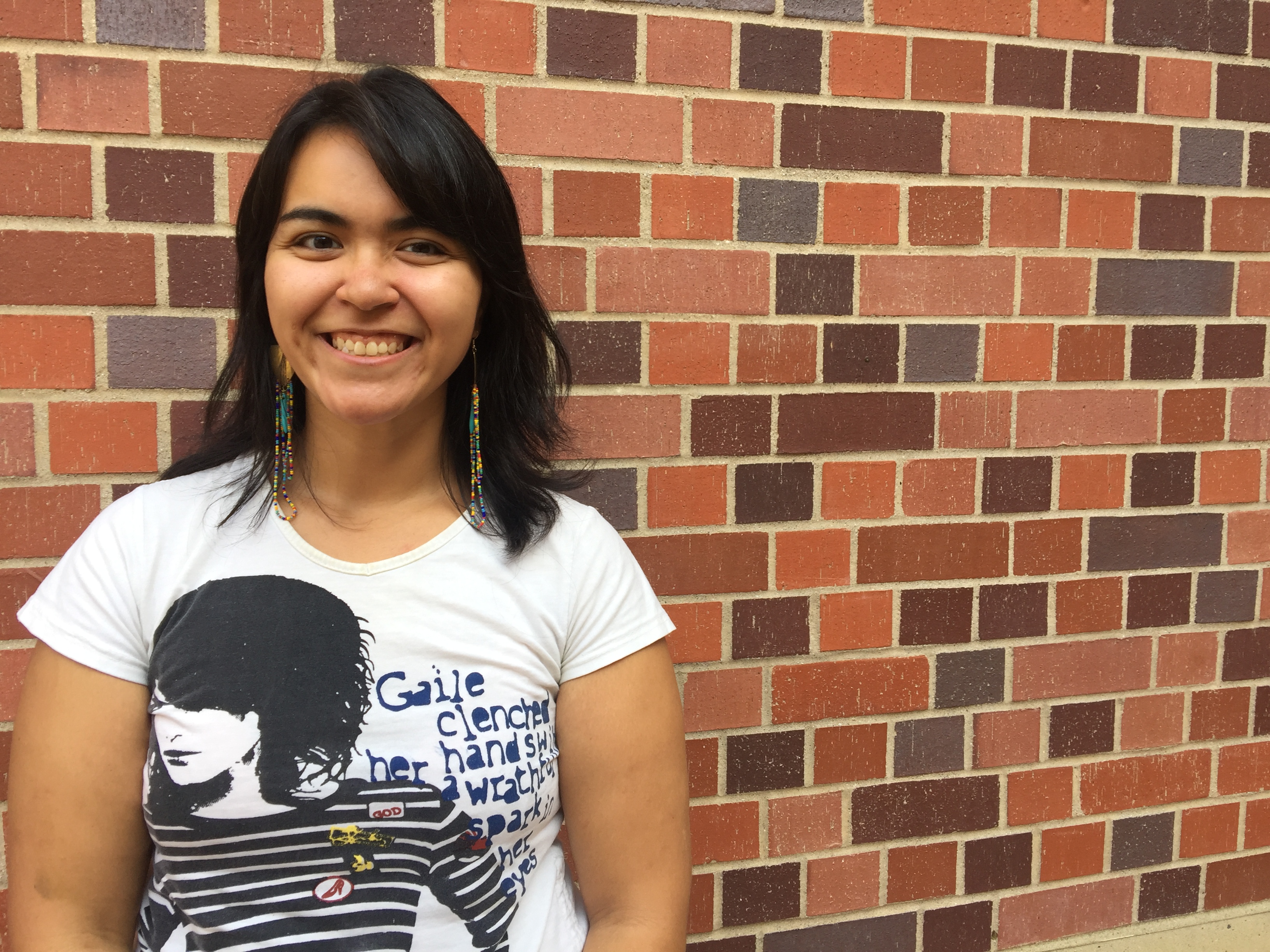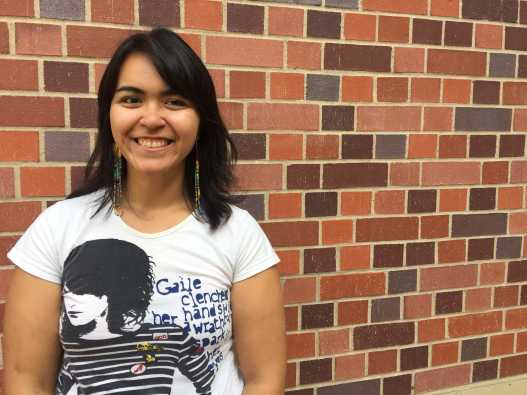Short play by USC student who drew inspiration from Visual History Archive earns recognition

 Amanda Andrei
Amanda Andrei This led her down the creative path to writing a 10-minute play that would earn her out-of-state recognition.
Last month, the play was selected to be performed by actors at the Midwest Dramatists Conference in Kansas. It happened in late September.
“The conference was fantastic -- it was really cool to see theater in a place I've never been before and see what topics and themes resonate with people in a different part of the country,” said Andrei, who is working toward a Master of Fine Arts degree in writing.
Called Cake For Winter, the sketch by Andrei – whose mother immigrated to the United States from the Philippines -- stems from a little-known fact that was also unknown to her: During World War II, thousands of Americans and Europeans were interned at Japanese-run concentration camps in the Philippines.
One of them was Jewish Holocaust survivor Gisela Golombek, whose USC Shoah Foundation testimony informed Andrei’s play, which features two starving prisoners interred at the Santo Tomas Internment Camp in Manila. Day after day, the prisoners – Golombek and the fictitious Constante -- fantasize about delicious desserts while picking worms out of their rice.
GOLOMBEK: I don’t know the last time I had meat.
CONSTANTE: And no vegetables for over a month.
GOLOMBEK: Just rice with worms.
CONSTANTE: Just worms with rice.
Andrei said Golombek’s testimony was an inspiration for a piece of fiction rather than for a recreation.
While the real Golombek was imprisoned with her family at age 9, Andrei’s fictitious version seems to be an adult, as does Constante.
Gisela Golombek’s Jewish family had immigrated to the Philippines via Britain after fleeing Nazi Germany just before the war. On Dec. 8, 1941 – the same day as Pearl Harbor – Japan attacked Manila. The 9-year-old Golombek and her family were among the thousands of Americans and Europeans rounded up from Manila homes.
“The Japanese came in like a horde -- they were all riding on bicycles,” Golombek said in her 1995 testimony. “It was an appalling sight to see all these thousands of soldiers, with all their gear on their back riding these bicycles.”
Golombek and her parents were imprisoned at the Santo Tomas Internment Camp in Manila.
“The last couple of years we had hardly any vegetables, hardly any meat,” Golombek told USC Shoah Foundation. “Mostly some rice – full of worms.”
Golombek goes on in her testimony to relate a story about how her friend’s uncle was so hungry he killed and ate a cat.
“I would never have been able to do it,” she said.
The play hints at this dilemma. On separate occasions while the two friends are fantasizing about cake, a cat walks past and they try to beckon it.
“I had just come from a talk by (author) Judith Butler about grievability and who is worth grieving,” Andrei said. “So that kind of played into it too. Is a cat worth grieving? … Who gets a say?”
The characters in the play transcend race or ethnicity.
“Most of my characters tend to be Filipino or white, or I try to specify the ethnicity,” Andrei said. “In this case I decided to just give them these two names, and they could be men or women or any race or ethnicity, which I think is kind of unusual for me.”
In a sense, the theme of the play also transcends the Holocaust or genocide.
“It’s about being really desperately hungry for something,” Andrei said, “whether it’s food or whether it’s freedom.”
Like this article? Get our e-newsletter.
Be the first to learn about new articles and personal stories like the one you've just read.